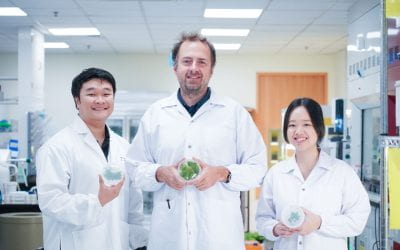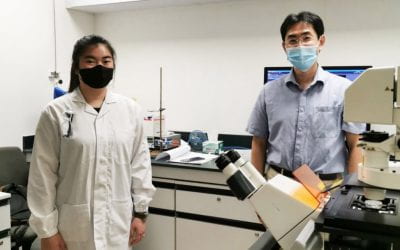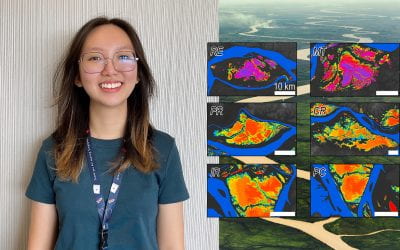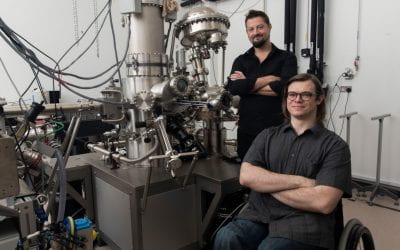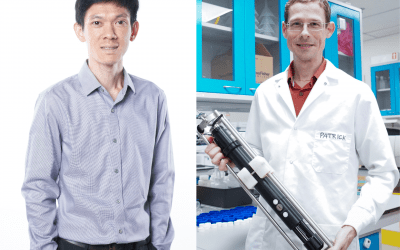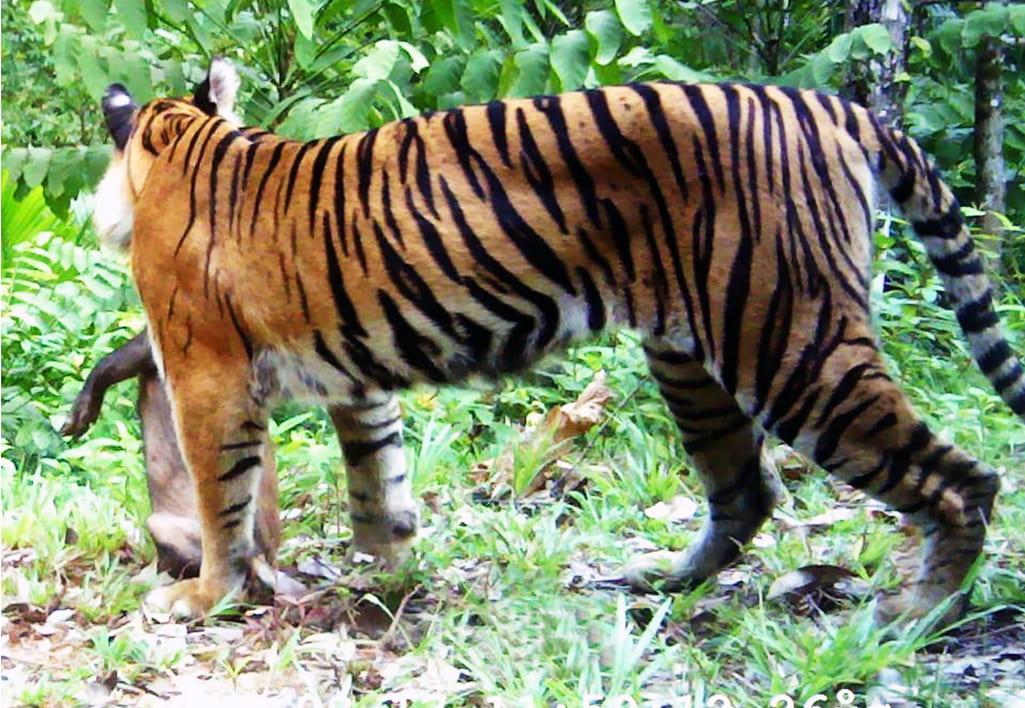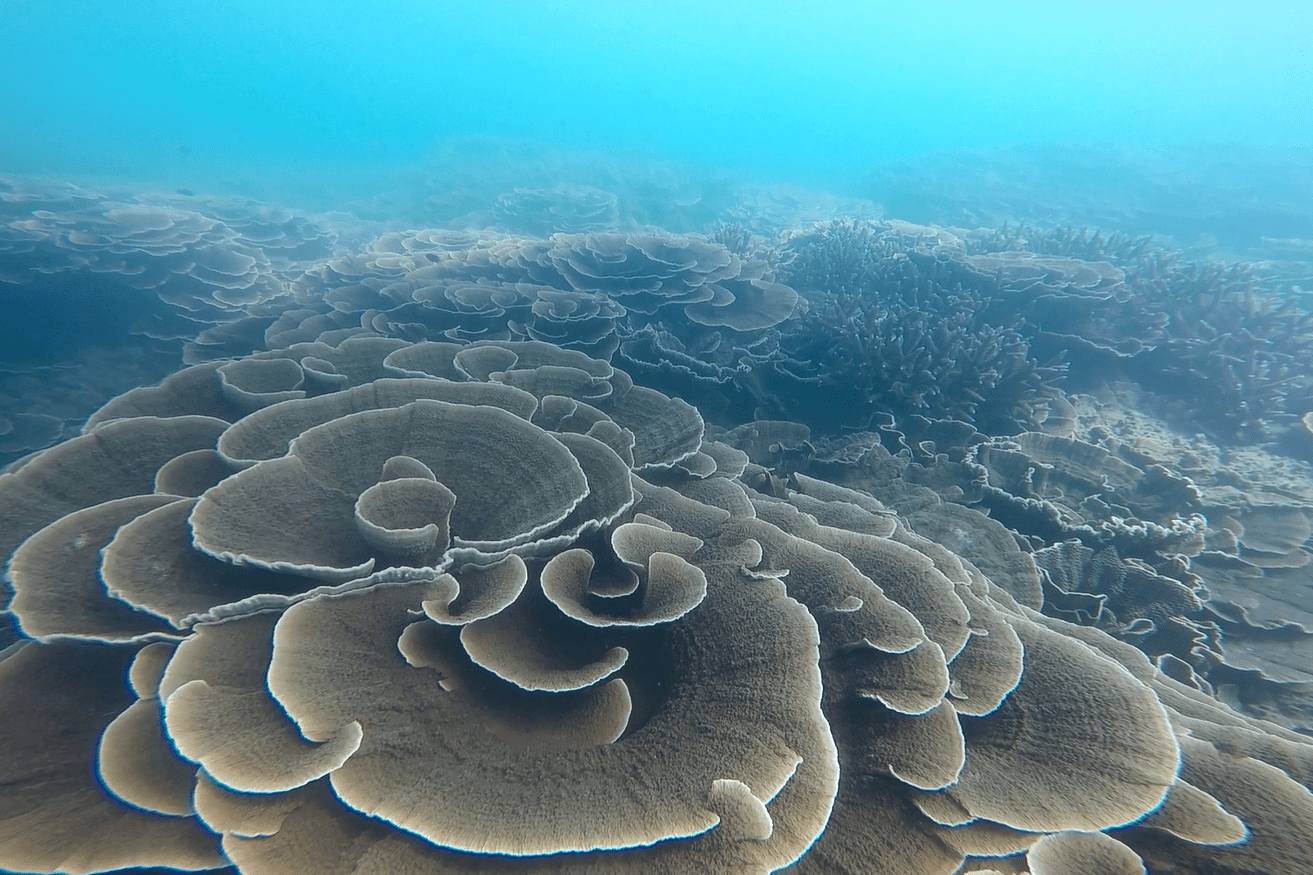A team of scientists from the NTU School of Biological Sciences have carried out research into how plants react to stressful conditions and devised a computational method that allows scientists to predict how plants will respond to complex environmental stresses. Their paper discussing their research and new computational method was recently accepted into the prestigious scientific journal, Nature Communications.
A Peek at the MSc in Chemical Sciences and Instrumentation Programme
The newly-launched Master of Science in Chemical Sciences and Instrumentation programme covers advanced chemistry concepts, instruments, data science, and technopreneurship. We interview a professor and a student in the programme to learn more about it.
URECA Research Excellence Award to Ang Wei Jing for mapping Amazon River floodplains
A URECA study with Asst Prof Edward Park at NIE gave ASE student Ang Wei Jing the opportunity to study the world’s largest river, the Amazon. With her project “Remote Sensing of Rivers” she won the URECA Research Excellence Award, and now she is publishing her results in a top journal.
Electrons on the Edge: Atomically Thin Quantum Spin Hall Materials
Atomically thin materials known as quantum spin Hall insulators have unusual properties that can be used to create error-resistant quantum computers. Nanyang Assistant Professor Bent Weber and Dr Michael Lodge survey the development of this exciting research field.
SPMS students won the Bronze Award at the University Physics Competition
In November 2020, a team of three physics students from SPMS took part in the University Physics Competition (UPC), an international competition for physics undergraduates. The team received a Bronze Award, given to teams placing between the top 17% to 46% amongst...
CoS Collaborative Research Award Winners to Develop Environmentally Friendly Procedure for Environmental Nitrate Measurements
Congratulations to Assistant Professor Patrick Martin (ASE) and Associate Professor Soo Han Seen (SPMS) for winning the College of Science (CoS) collaborative research project to develop a more environmentally friendly procedure for nitrate analysis.
A Question of Nature or Nurture: how early-life stress can be mitigated by environmental enrichment
In their latest research, Assistant Professor Rupshi Mitra, Dr Akshaya Hegde and Shruti Suresh of Team Resilieo delve into the applications of environmental enrichment as a curative approach.
Human-tiger Conflicts in Sumatra – using data modeling to tailor management response
“The most important thing when working with human-tiger conflicts, as well as other conflicts involving humans and predatory animals attacks, is to work collaboratively and to prepare the local communities in how to deal with or mitigate conflict situations. This human-tiger conflict risk map will help prioritize areas and enable more effective use of the limited resources available”, says ASE PhD candidate Muhammad Irfansyah Lubis, lead author of a new paper published in the journal Animal Conservation.
Lights Out for Muddy Water Coral Reefs as Global Sea Level Rises?
Although the impacts of climate-related coral bleaching are well documented, knowledge of how sea level rise will influence reefs is limited. Global sea level rise (SLR) will present a major threat to turbid coral reefs, located in shallow coastal waters, by increasing the depth of water covering them, and reducing the amount of sunlight available on the seafloor. This will change the amount of habitat available for certain corals to grow, shows a new study led by ASE Presidential Postdoctoral Fellow and AXA Research Fellow Dr Kyle Morgan published last week in Proceedings of the Royal Society B.
Testing Wastewater Supports Monitoring of COVID-19 in Singapore
ASE/SCELSE Associate Professor Janelle Thompson is leading a team of scientists from NTU-SCELSE working with the NEA Environmental Health Institute to monitor the presence of the virus causing COVID-19 (SARS‐COV‐2) in wastewater in Singapore. Measuring the presence of virus in wastewater is not only cost effective but could also help trace new outbreaks at an early stage.

